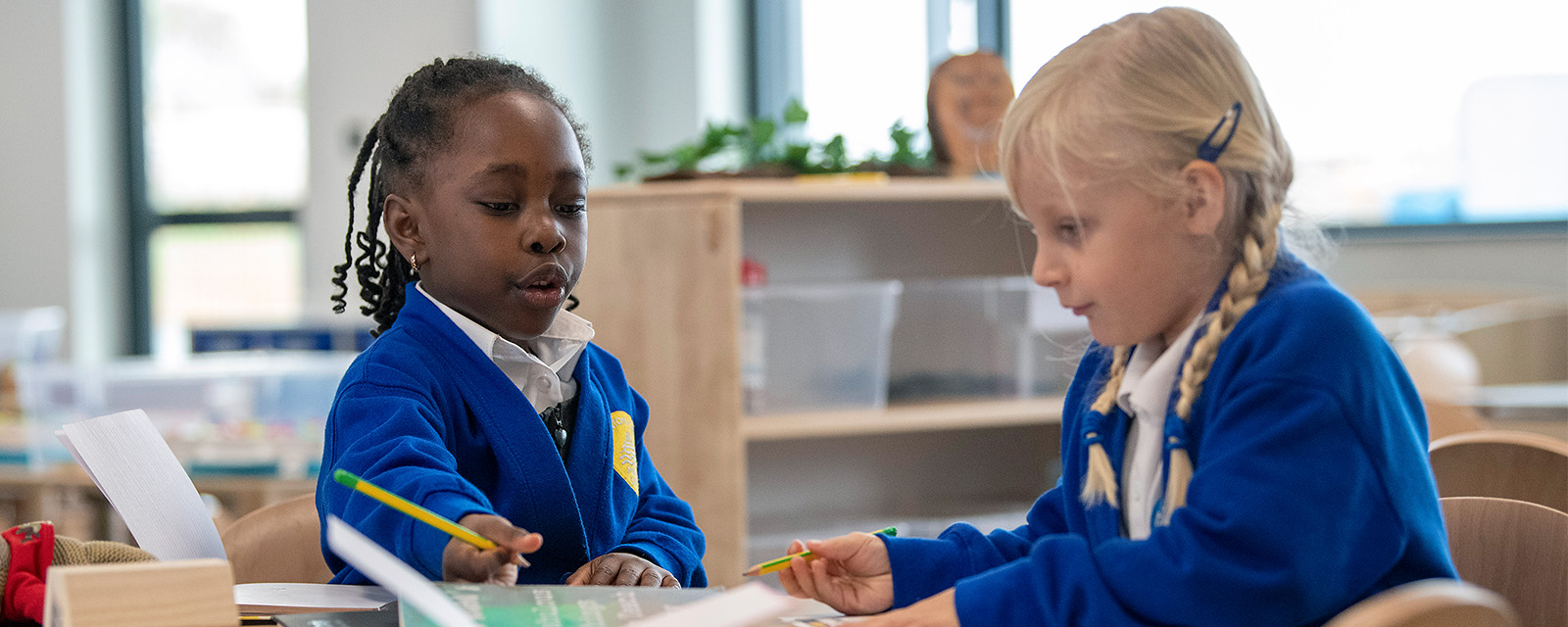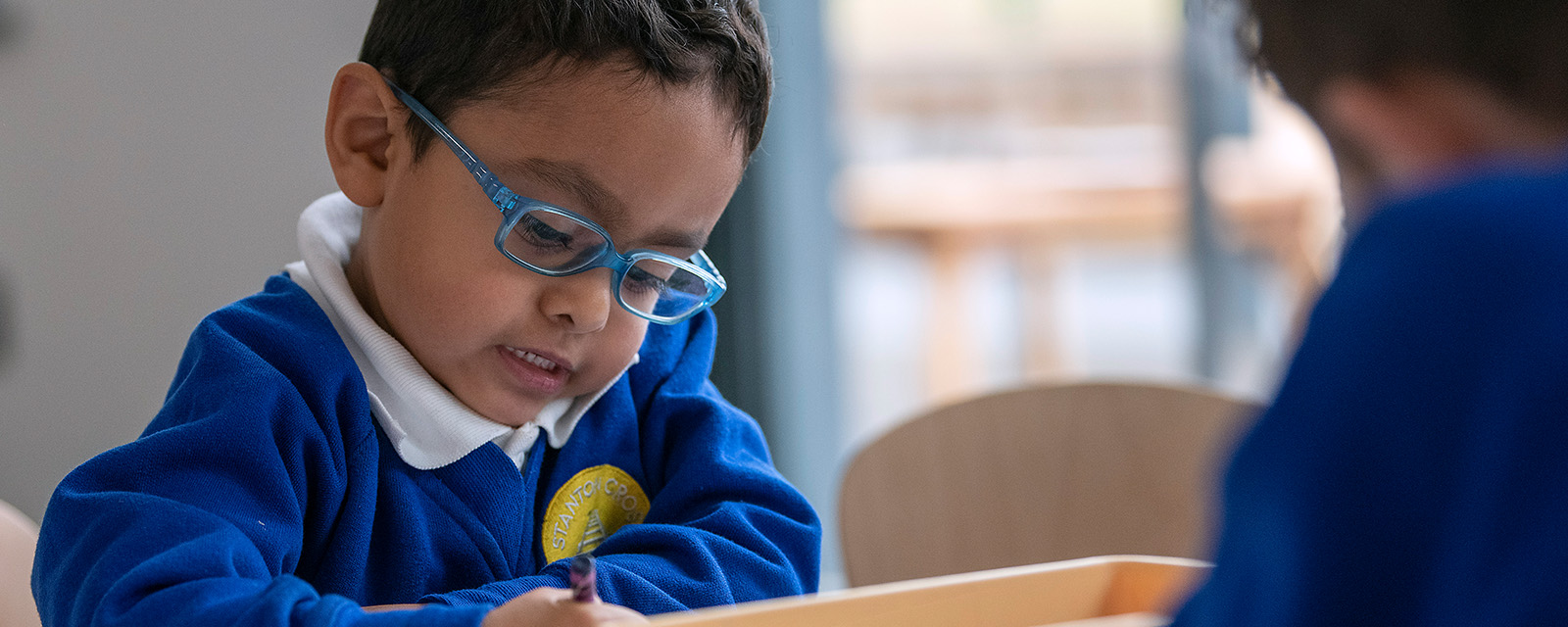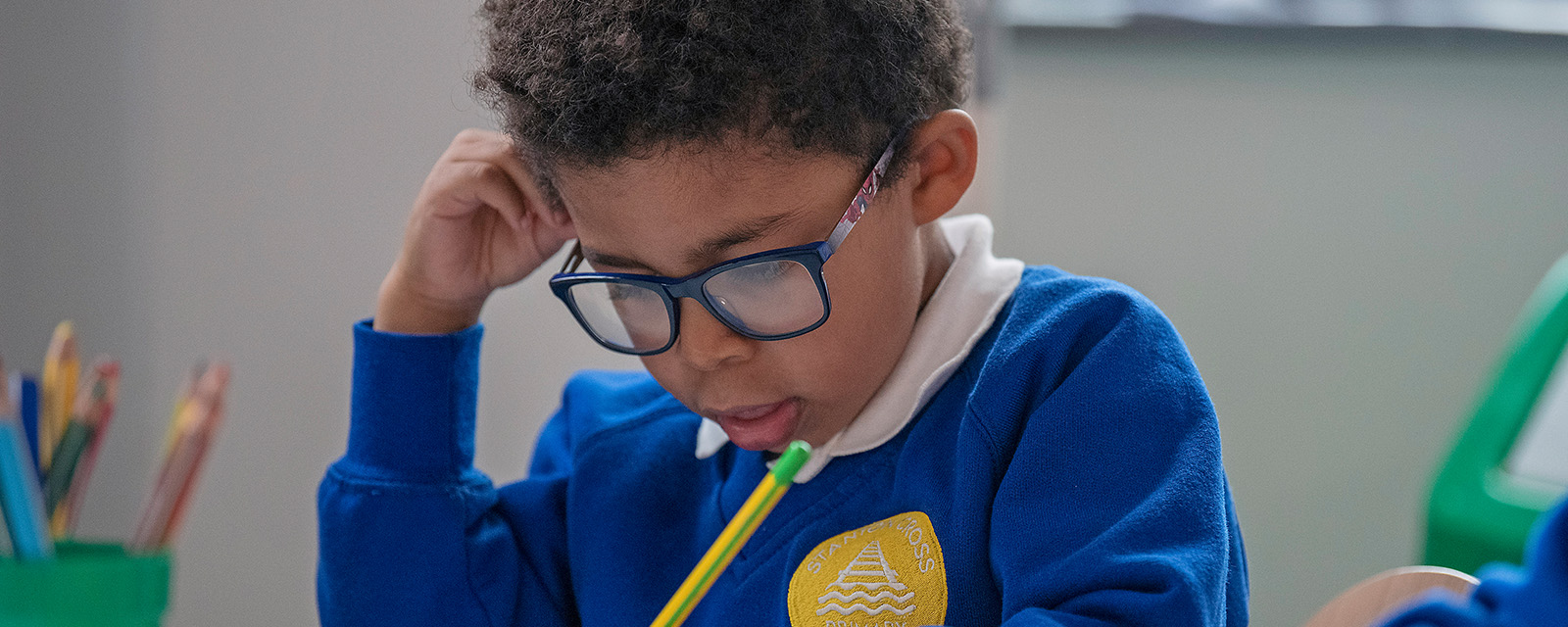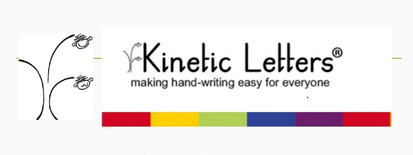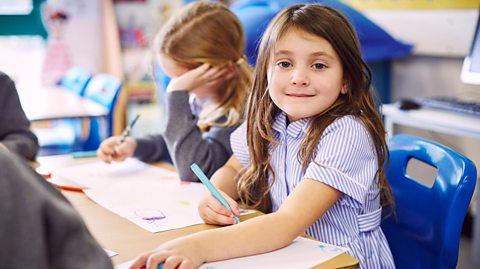
We understand, in line with the national curriculum, that writing is split into two areas: transcription, of which we include spelling, grammar and handwriting, and composition.
Transcription
We follow the Kinetic Letter handwriting programme which enables children to develop their core body strength alongside the formation of letters.
The aims of the programme are that children become fluent and automatic writers, freeing up their working memory for creativity, flair and composition.
Grammar and punctuation are systematically taught through our approaches to English with the expectation that children will learn to speak and write in grammatically correct and aspirational sentence forms.
Children are encouraged to use their phonics strategies and skills in order to encode words at the point of writing. From Year 2, children begin a spelling programme, called Essential Spelling. This enables teachers to deliver active lessons to enable children to gain knowledge, understanding and investigate key spelling patterns and rules. This is delivered through a series of well-planned and resourced sessions. Children will be introduced to new concepts and given the opportunity to practise, explore, explain and demonstrate their understanding.
Composition
We use the Talk for Writing (TfW) approach to teach children to become independent, confident and creative writers.
Talk for Writing is based on the theory of cognitive science and is rooted in research. This inclusive approach systematically supports children in order to become independent writers and complements our reading strategy and vice versa. Reading is a central part of the TfW process, equipping children to compose and to write cohesively. The programme immerses children in spoken and written language, enabling them to also talk and write with confidence. The Talk for Writing method enables children to understand and gain confidence of a range of different genres including non-fiction text types.
Through making explicit the method and thinking involved in the writing process it ensures that children can internalise it and apply it in their own writing.
The strategies that teachers explicitly teach through the Talk for Writing process are:
- Modelling
- Selecting, judging and applying linguistic devices and words for effect.
- Demonstrating
- Evaluating
- Memorising
- Instructing
- Recall / revising
- Innovating – manipulating what they know to create something new.
Writing Documents
| Title | Description | Download |
|---|---|---|
| pdf Talk 4 Writing Long Term Plan_Stanton Cross | Download |

